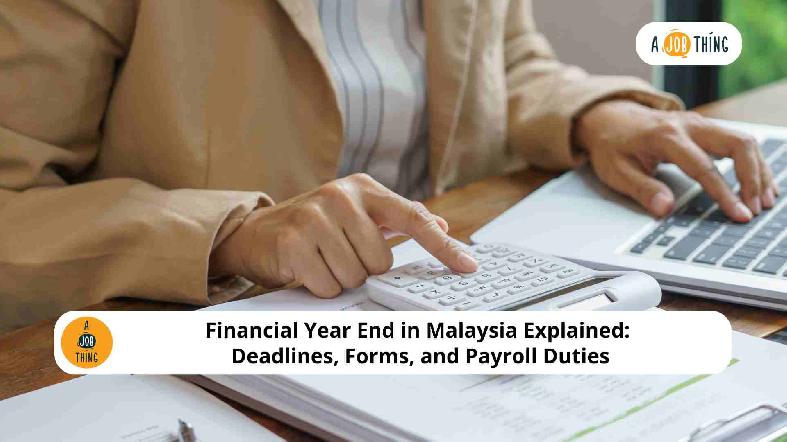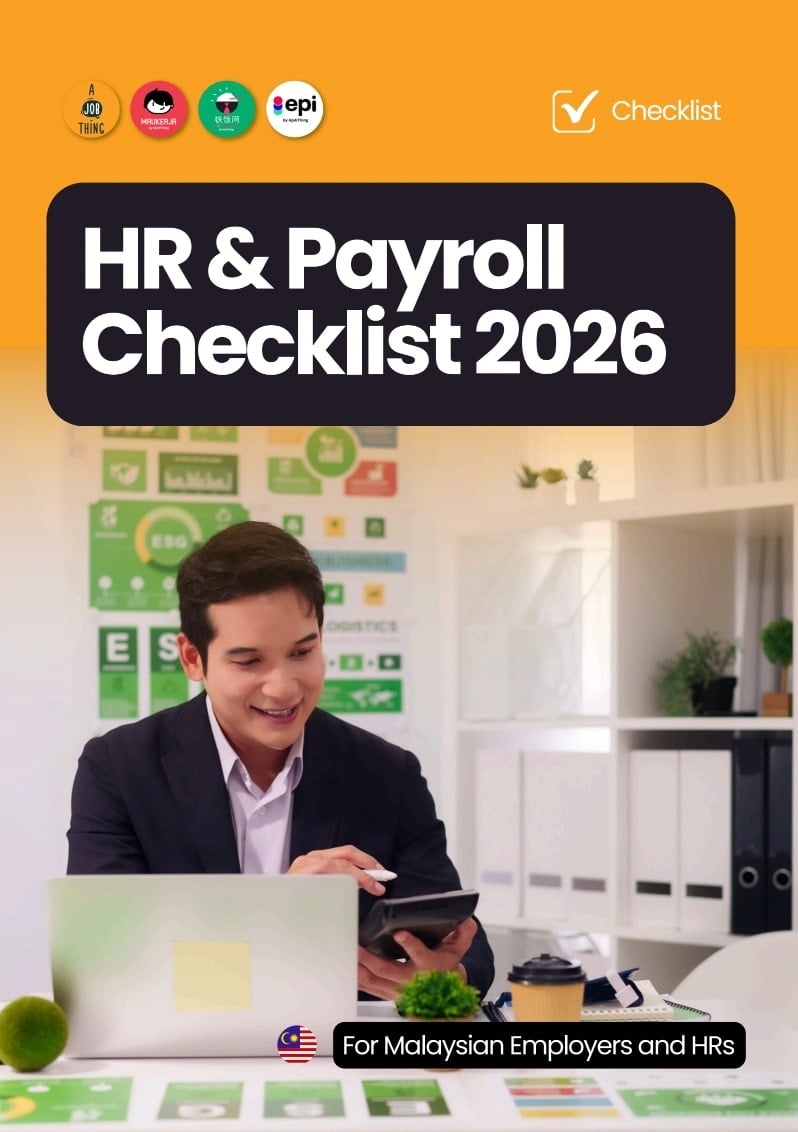
Financial Year End in Malaysia Explained: Deadlines, Forms, and Payroll Duties
Are You Hiring?
Find candidates in 72 Hours with 5+ million talents in Maukerja Malaysia & Ricebowl using Job Ads.
Hire NowAs the financial year draws to a close, HR and payroll teams across Malaysia face one of their busiest seasons. Beyond balancing accounts, employers must review payroll data, finalise deductions, and file essential forms with LHDN. Done right, this process not only keeps your business compliant but also sets the stage for smoother operations in the year ahead.
What is Financial Year End (FYE)?
The financial year end (FYE) marks the official closing of a company’s accounting and reporting period. It is the point where businesses consolidate financial results, finalise payroll data, and prepare mandatory submissions to the Inland Revenue Board (LHDN).
Why does it matter? For employers, FYE determines the deadlines for tax filing, payroll reporting, and statutory compliance. Getting it right means avoiding penalties and ensuring employees receive accurate documentation for their personal tax submissions.
Most businesses in Malaysia adopt 31 December as their financial year-end, aligning with the calendar year. However, under the Companies Act 2016, companies are free to choose another date, such as 31 March, 30 June, or 30 September, depending on their operational or reporting needs.
Required Documents for Financial Year End and Tax Obligations
Employers must prepare and submit specific forms and records to LHDN and provide them to employees at the end of the financial year. Each document serves a distinct purpose in confirming employee income, tax deductions, and company obligations.
EA Form (CP8A)
A statement of remuneration for each employee, summarising salary, allowances, benefits, PCB deductions, and contributions. Issued to employees by the end of February to help them file personal tax returns.
CP8D
A detailed statement of remuneration and benefits in kind is submitted electronically by employers to LHDN.
CP204
The estimate of tax payable form, which companies must submit and revise if necessary to reflect expected tax liabilities.
PCB (Potongan Cukai Bulanan) Records
Employers must maintain complete monthly PCB deduction records and ensure all amounts have been remitted to LHDN.
Employer’s Form E
An annual declaration by the employer summarising employee details and PCB remittances, submitted to LHDN by 31 March.
Corporate Income Tax Filing
Companies must submit their tax returns (Form C, PT, B, or P, depending on business type) within seven months after FYE.
Supporting Payroll and Deduction Records
Documents relating to EPF, SOCSO, EIS, HRD levy, and other statutory deductions must be up to date and retained for a minimum of 7 years.
Impact of Financial Year-End on Businesses
FYE has a direct impact on both payroll and HR operations. Employers need to:
Close Payroll Accurately
Final pay runs of the year must reconcile salaries, deductions, and statutory contributions.
Adjust for Bonuses and Incentives
Year-end bonuses, commissions, and incentive payouts must be included in payroll and reflected in EA forms.
Account for Leave Encashment
If employees encash unused leave, this is treated as taxable income and must be included in payroll records.
Coordinate HR Compliance
HR teams must ensure that employee data is correct, forms are distributed on time, and submissions match what has been reported to LHDN.
When managed well, FYE becomes an opportunity not only for compliance but also for payroll accuracy and improved workforce planning.
Preparation Steps for Financial Year-End Compliance
A smooth FYE requires early planning and systematic checks. Employers should take these steps:
-
Ensure salaries, overtime, allowances, and deductions match accounting records.
-
Confirm employee names, identification numbers, and tax file numbers are accurate.
-
Review allowances, benefits, and perquisites. Verify that taxable benefits-in-kind (BIK) such as cars, housing, and insurance are recorded correctly.
-
Update all statutory deductions such as EPF, SOCSO, EIS, HRD levy, and PCB contributions for the year.
-
Work closely with finance teams to align payroll data with audited accounts.
-
Prepare EA and E forms in advance. Avoid last-minute errors by drafting these forms ahead of deadlines.
Employer Checklist: Deadlines and Penalties (Downloadable PDF)
To make compliance easier, employers can use a year-end checklist that tracks key submissions, due dates, and potential penalties for late filing.

Free Download HR & Payroll Checklist
Frequently Asked Questions (FAQ)
What is the financial year-end date in Malaysia?
For sole proprietors and partnerships, the FYE is 31 December, in line with the calendar year. For companies, the date is flexible and determined by the company’s constitution, though most choose 31 December.
Can companies choose their own financial year-end?
Yes. Under the Companies Act 2016, companies may select their FYE. Common alternatives are 31 March, 30 June, or 30 September.
Is December 31 compulsory as FYE in Malaysia?
No. While many companies adopt 31 December for simplicity, it is not mandatory. The board of directors can decide on another date.
How does FYE affect tax filing deadlines?
Corporate income tax returns are due within seven months after the company’s FYE. For example, if your FYE is 30 June 2024, the tax return must be filed by 31 January 2025.
Do employers need to give Form EA by the financial year end or calendar year?
EA forms must cover the income earned during the calendar year (1 January to 31 December) and be issued to employees by the end of February the following year.
Can a company change its financial year-end in Malaysia?
Yes. A company can change its FYE by notifying the Companies Commission of Malaysia (SSM), provided it follows the conditions under the Companies Act 2016.
Ready to Build Your Future Team?
With AJobThing, finding the right talent is simple and fast.
Post your job ads today and reach candidates on Maukerja, Ricebowl, and Epicareer!
Read More:
- Payroll Checklist Malaysia 2025: Deadlines, Penalties, and Best Practices for Employers
- Withholding Tax in Malaysia Explained for Employers
- How Employers Should Handle Income Tax Reporting to LHDN
- How to Handle Tax Residency Certificate Requests in Malaysia
- How to Check Income Tax for Employers in Malaysia
- Employee Income Tax Number in Malaysia: How to Check and Register for It
- Malaysia Tax Bracket 2025: Income Tax Rates for Employers
- Tax Reliefs in Malaysia 2025 for Employers: Types and How to Apply
- SWIFT/ BIC Codes for Banks in Malaysia

